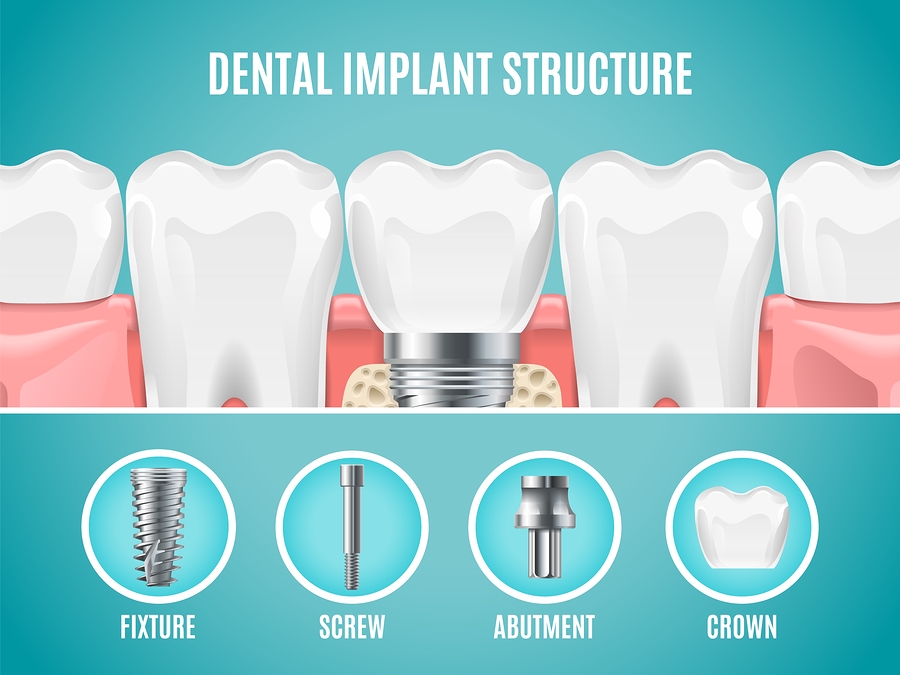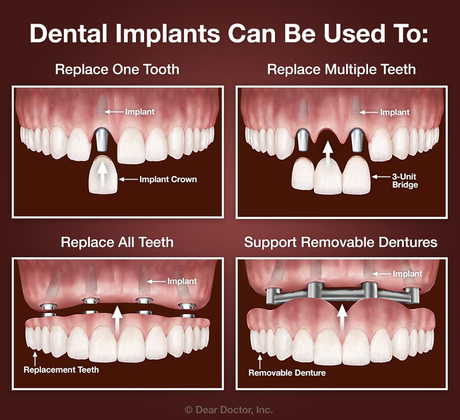How Dental Sense can Save You Time, Stress, and Money.
How Dental Sense can Save You Time, Stress, and Money.
Blog Article
Dental Sense Things To Know Before You Buy
Table of ContentsThe Single Strategy To Use For Dental SenseAll about Dental SenseRumored Buzz on Dental SenseWhat Does Dental Sense Mean?
are medical gadgets operatively dental implanted right into the jaw to recover an individual's ability to chew or their appearance. They provide assistance for artificial (fake) teeth, such as crowns, bridges, or dentures. When a tooth is lost as a result of injury or illness, a person can experience problems such as fast bone loss, malfunctioning speech, or modifications to eating patterns that result in discomfort.Oral dental implant systems are composed of a dental implant body and dental implant abutment and might additionally consist of a joint addiction screw. Kids dental. The dental implant body is surgically placed in the jawbone in area of the tooth's origin. The oral implant abutment is typically affixed to the implant body by the abutment fixation screw and extends via periodontals right into the mouth to support the attached synthetic teeth
(https://penzu.com/p/6de5c74cda18cc8f)Framework of The Dental Implant System choosing dental implants, speak to your oral company concerning the prospective advantages and threats, and whether you are a prospect for the procedure. Points to take into consideration: Your overall health is a crucial consider figuring out whether you are a good candidate for oral implants, how long it will require to recover, and the length of time the dental implant might remain in location.
Smoking may affect the recovery process and reduce the lasting success of the dental implant. The recovery procedure for the implant body might take several months or longer, throughout which time you normally have a temporary joint in area of the tooth. the dental implant treatment: Carefully follow the oral health guidelines offered to you by your dental provider.
Our Dental Sense Statements
Implant failure can result in the need for another operation to fix or change the implant system. Recovers the capacity to chew Recovers aesthetic look Aids keep the jawbone from shrinking due to bone loss Maintains the health of the surrounding bone and gum tissues Assists keep surrounding (nearby) teeth steady Enhances lifestyle Damage to bordering all-natural teeth during implant positioning Injury to the surrounding cells throughout surgical treatment, such as sinus opening Injury throughout surgical procedure (for example, fracture of surrounding jawbone) Inadequate feature, such as really feeling like the teeth do not attack together normally A sensation that the tooth hangs or turning in location arising from a joint screw loosening Implant body failure (looseness of the implant body) due to systemic infection, which might be extra likely in people with unrestrained diabetes due to regional infection in bone and gum tissues supporting the dental implant body as a result of postponed healing, which might be most likely in individuals who smoke Trouble cleansing the periodontals around the implant, causing poor dental health Without treatment gum condition Post-surgical tingling because of nerve impingement or damages Always alert health and wellness care companies and imaging service technicians that you have oral implants before any type of magnetic resonance imaging (MRI) or x-ray procedures.
FDA is not familiar with any negative events reported for MRI or x-ray treatments with dental implants. Dental implants systems are usually made of materials that adhere to international agreement requirements of the International Company for Standardization (ISO) or ASTM International. These criteria have details of what makes a safe product.

An oral implant is a structure that changes a missing tooth. With screw-like tools, the surgeon inserts an implant into the jawbone, and it acts as a support for a synthetic tooth, called a crown.
Top Guidelines Of Dental Sense
Some people are not qualified for oral implant surgical procedure. It is for dental doctors to operate individuals with: acute see this site illnessuncontrollable metabolic diseasebone or soft tissue disease or infectionIf these problems are settled, a person can have the surgical procedure. In, dental specialists avoid from operating individuals with: If individuals with any of the above go through dental implant surgery, there is a greater threat of the implant stopping working.

Oral dental implant surgical treatment is an individualized procedure. It's not the very same for every person. But the following gives a basic introduction of what you can expect your dental professional, dental surgeon, periodontist or prosthodontist to do: Position the implant operatively. Provide you time to heal. Attach the post and last crown, bridge or denture.
Next off, your specialist will carefully put the oral implant into your jaw. Lastly, your doctor will certainly rearrange your gums and close the laceration with stitches. If your dental implant is near the front of your mouth, your dental practitioner will make a short-lived tooth for you to wear till you recover. That means, you will not have a space in your smile while you recoup.
Dental Sense for Beginners
Throughout the healing stage, your jawbone must fuse to the dental implant. This process can take anywhere from three to 9 months.
When your dental implant heals, your dental practitioner can affix the abutment (small port post) and your final reconstruction (crown, bridge or denture). This usually takes regarding one hour to complete and may need a 2nd minor surgical treatment. You shouldn't feel any type of pain during your dental implant procedure since your company will make use of drug to numb your periodontals.
Report this page